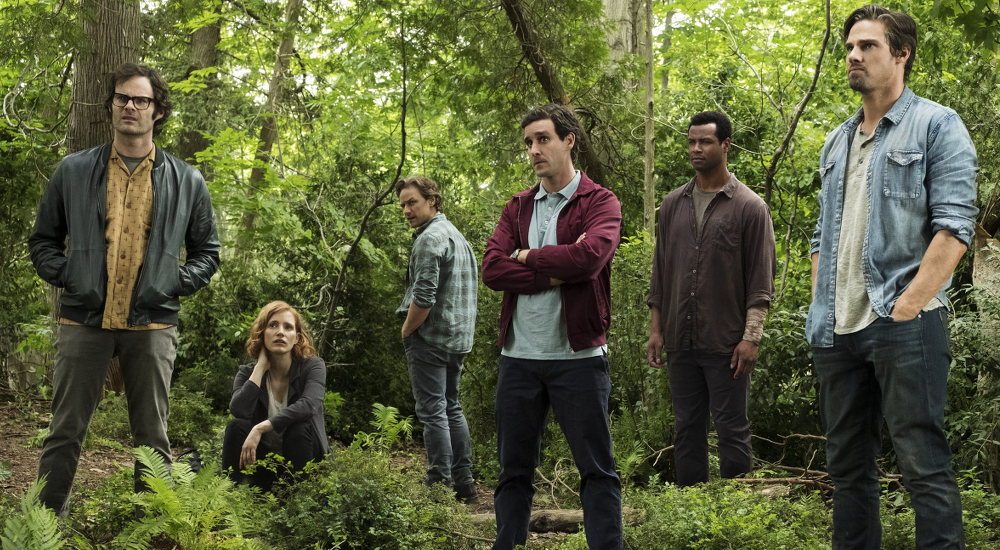This piece contains spoilers for both Brittany Runs a Marathon and It: Chapter Two.
Brittany Runs a Marathon and It: Chapter Two couldn’t be any different. One’s (mostly) a comedy, the other is (mostly) horror. One will make a tiny bit of money, and the other will make a shit-ton. One is good, the other, not so much.
However, both films, at their core, are about the extreme importance of having real friends.
When Brittany first tries to run for one whole block, she can barely do it. But after joining a running group led by her landlady (Michaela Watkins) and striking up a friendship with Seth (Micah Stock), she has the motivation to keep going, finishing a 5K, then a half-marathon. It isn't until she rejects their help at a critical moment in her life that she overworks herself and gets injured, taking her out of commission and missing the all-important New York City Marathon.
It: Chapter Two hits this point even harder. The Losers Club, disbanded not long after subduing Pennywise as kids, have all grown up to lead separate lives, most of them covering up their pain and guilt with unhealthy coping mechanisms. When they return to Derry at the behest of Mike (Isaiah Mustafa) – who’s discovered Pennywise has returned to torment their hometown once again – they don’t gel at first. But once they accept what’s at stake, they grow stronger. And yet, once they split up and try to defeat evil on their own, they succumb to mental and physical wounds. When they have each other’s backs and work together, they “kill this fucking clown” once and for all.
Even if you’re not trying to perform a superhuman feat and run 26.2 miles, or attempting to defeat a supernatural clown with murderous instincts, having friends you can rely on is essential to surviving this world. Between the horrors of climate change, evil political leaders and the crushing weight of capitalism, trying to navigate it all alone is a recipe for disaster.
British writer Hugh Kingsmill once wrote, “Friends are God’s apology for relations.” For people like Brittany and much of the Losers Club who don’t have great relationships with those who raised them, having real friends is especially important. A sound support system can help get you through tough times, while also celebrating your achievements.
So whether you are stuck in the real world or lost within that of your favorite film, nothing is easy. This past week we witnessed one person work to get into shape while a group of former best friends finally confronted their childhood trauma. Though they are entirely separate situations and are working to relate to entirely separate demographics, they ultimately hammer home the same lasting lesson: you can’t do it all on your own.
Now time to find your own Losers Club or Astoria Runners Club to keep pushing you forward – preferably without the running or the murderous clown.

